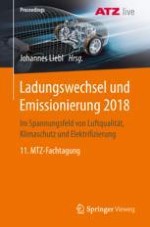2019 | OriginalPaper | Buchkapitel
Efficient Utilization of the Gas Exchange Advantages of an Infinite Variable Mechanical Valve Train System
verfasst von : Michael Breuer, Stefan Moormann, Stephan Schmitt, Paul Freeland, Gareth Jones
Erschienen in: Ladungswechsel und Emissionierung 2018
Verlag: Springer Fachmedien Wiesbaden
Aktivieren Sie unsere intelligente Suche, um passende Fachinhalte oder Patente zu finden.
Wählen Sie Textabschnitte aus um mit Künstlicher Intelligenz passenden Patente zu finden. powered by
Markieren Sie Textabschnitte, um KI-gestützt weitere passende Inhalte zu finden. powered by
